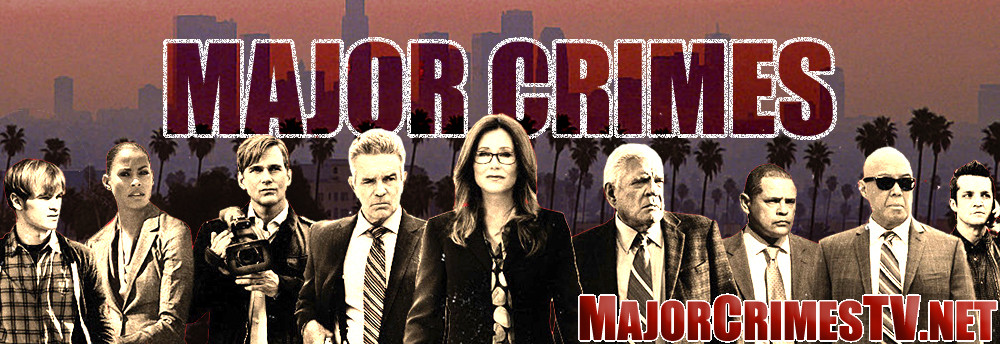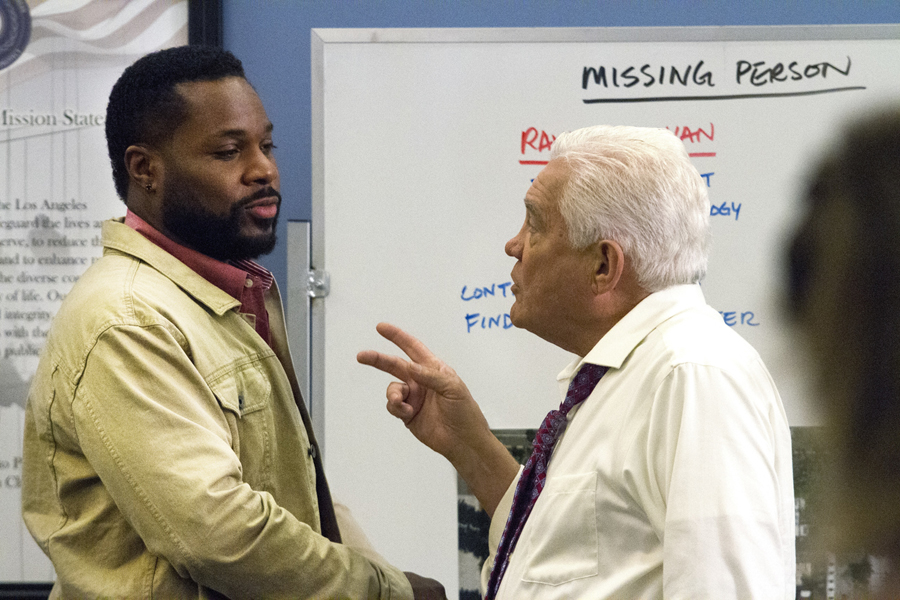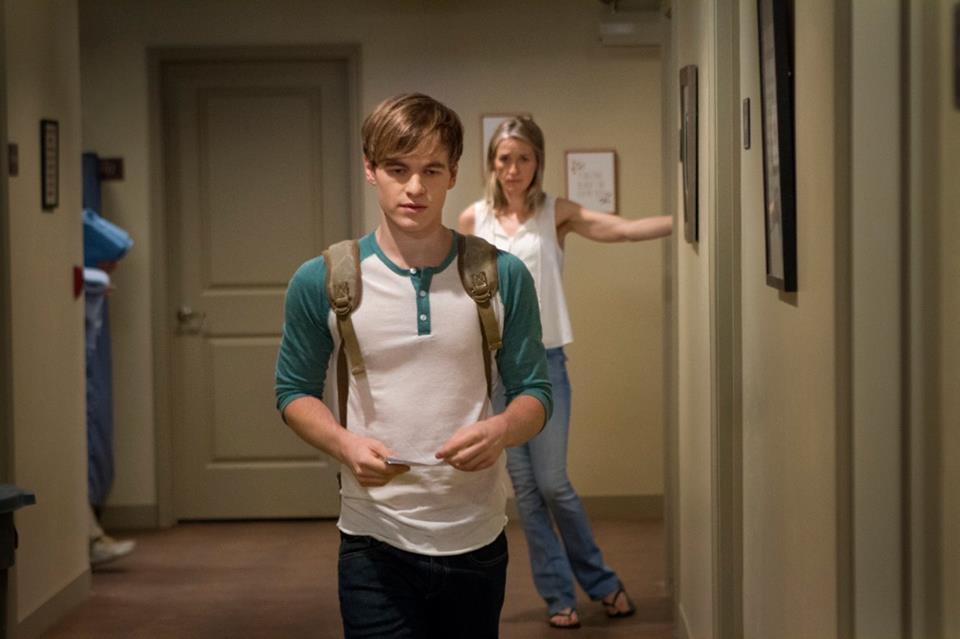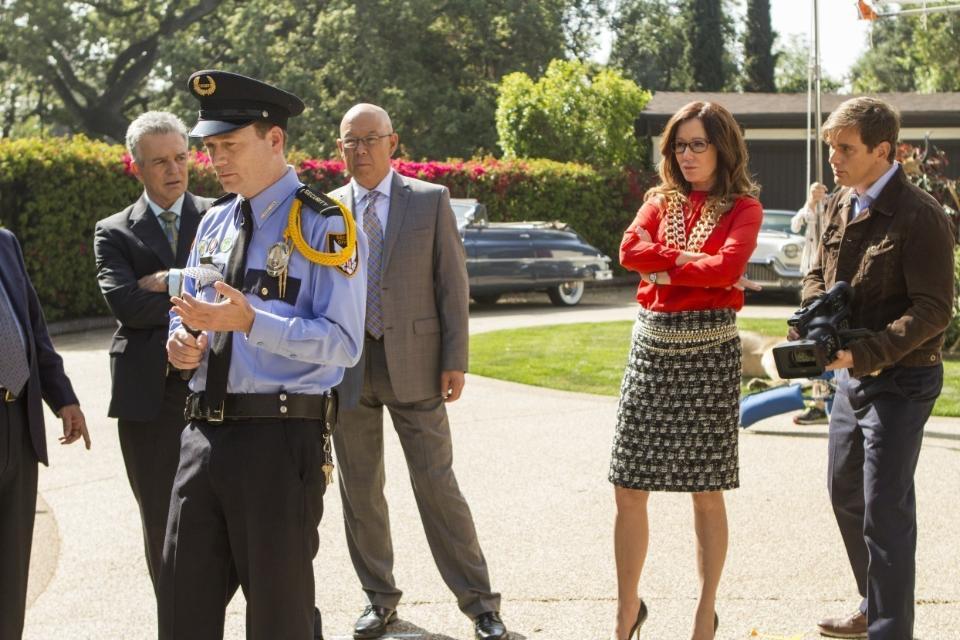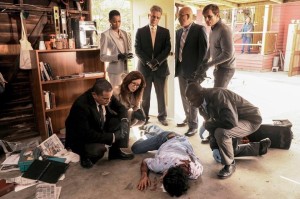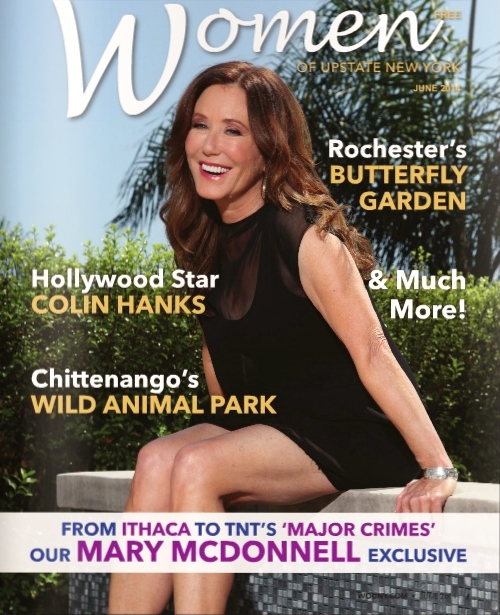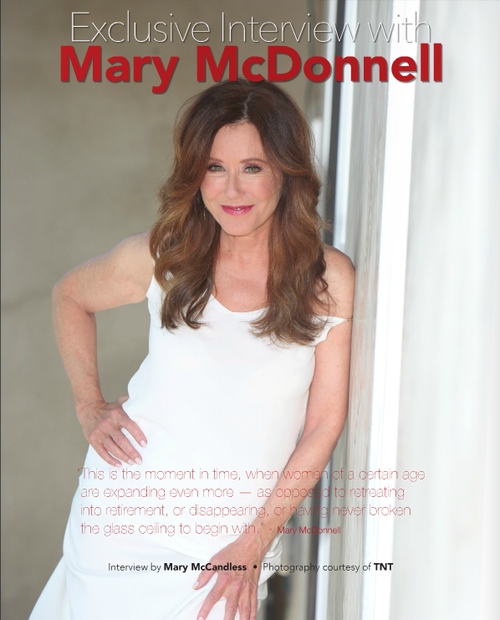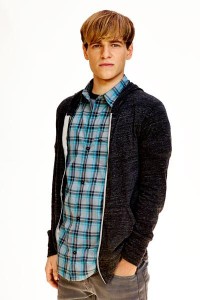 In a fantastic new interview with Advocate, Graham Patrick Martin discusses how he prepared to play the role of Rusty Beck on Major Crimes, how the LGBT community has reacted to the character, and how, in the words of the article, how he and James Duff have “created one of the best gay characters on TV.”
In a fantastic new interview with Advocate, Graham Patrick Martin discusses how he prepared to play the role of Rusty Beck on Major Crimes, how the LGBT community has reacted to the character, and how, in the words of the article, how he and James Duff have “created one of the best gay characters on TV.”
“Graham Patrick Martin’s Rusty was one of the most important characters bridging the The Closer finale to the Major Crimes premier. Since then he’s created one of the most complex, fleshed out, confusing, maddening, hopeful, and loving gay characters we’ve ever seen on cable TV. The upcoming episode on July 9 lets Martin showcase his acting chops as Rusty comes to terms with his mother, his past, his new family, and himself.
You’ve had a great storyline, going back to last year, on Major Crimes. Did you have any concerns about taking the role?
I think my concerns are the same as every actor. Can I find this character and make it come to life properly? And, at first, it was just a one-off guest- starring role on The Closer finale. I almost didn’t even audition! I was asleep when I got a the call saying I had a same-day audition in three hours, and I thought, “If I read this part, and it’s not good, I’m not going.” And I remember being irritated because I liked it. And I decided I really wanted to play it. So I got up and really worked on it and then, while we were shooting it, I began to like the character so much I didn’t want to leave him behind. So I was very happy when James Duff and Mike Robin asked me to stay around for Major Crimes.
Crime dramas aren’t usually known for portraying fully-fleshed out gay characters, but Major Crimes seems to be doing just that. What do you attribute as the reason the show has gotten it right with this character?
I think part of the reason my role is more authentic than a lot of other gay parts you see on television is that I’m not there just for laughs. Also the trauma of having been on the streets as a hustler because I was abandoned by my mother, gives me something of a unique journey in the basic cable-network television universe.
I know this is a story that was really important to executive producer James Duff. What has he told you about the role, the story arc?
Of course, you’d have to ask James this question, but I know he’s told me the part’s based a little on him, and that he wasn’t very popular in his late teens. He didn’t have a lot of friends his own age. And he ran away from home when he was 17 and finished high school on his own. I haven’t discussed this aspect of the role with him very much because I’m playing it how I see it and how I feel it. He can say it’s him, but it’s me.
You came on the scene as a homeless teen turning tricks to survive. Were you able to talk to other homeless LGBT teens before or during the role?
I did not talk to any homeless LGBT teens in preparation for this role. I didn’t think it would feel good to talk to a homeless teen for the benefit of my performance, then turn around and collect my series regular paycheck. Just didn’t seem right to me. I also played a character with a similar background in a film called Somewhere Slow. For both roles I instead decided to read as many blogs and testimonials as I could by people who had experienced this world and gotten out of it. Look, it’s pretty dark, really, when you sit down and think about it, Rusty’s life. I try to keep that darkness nearby without playing it. Because Rusty is, essentially, a hopeful character. But people need hope for a reason, don’t they?
There was a tough episode in which a 13-year-old trans girl named Michelle is murdered and her family are suspects. That’s every trans kids worst nightmare. How does filming a tough story like that affect the actors?
Everyone has there own process. A lot of times, Rusty doesn’t really have much to do with the crime; he’s more the personal side of things. And so the intense elements of the procedural in “Boys Will Be Boys” didn’t involve me. But the guy who was bullying the transgender kid is brought in and calls me a “faggot.” And that felt really horrible. There wasn’t much acting going on in that moment, because it was just so [pausing] well, rude does’t exactly cover it. I don’t understand the whole name-calling thing.
Your character’s storyline for me is resonant, not because of issues of identity or orientation, but because I’m the child of an addict. What part of Rusty’s life resonates with you the most?
I think the part of Rusty I find most interesting is that he doesn’t ever accept the role of victim. He is not always out there doing the right thing, either. He makes mistakes. And then he tries to rebound. And he actively wants to take responsibility for his own life. Sometimes he doesn’t succeed, but he tries. Which is why his mother and her addictions drive him crazy. His determination not to get dragged back into her madness is a sign of growth. But he doesn’t fully let go of her either. I think that’s how it works. You turn your back on the addiction, not the person. But it’s hard, because they look alike.
Do you hear from other people who connect with what you’re going through on the show?
All the time. It’s wild to be visiting New York and crossing the street and having someone yell out at me, “Hey, Rusty!” Or to be recognized when I go out as “the kid on Major Crimes.” And I think people relate to the journey he’s going on because finding out who you are is something every young person has to do. It’s part of becoming an adult. Plus, everyone has to come to terms with the role sex plays in their lives. Rusty dramatizes that. And, I think, the LGBT community relates because Rusty doesn’t really have many of the old cliches attached to gay characters on television. He doesn’t sing show tunes. He doesn’t get all excited about figure skating during the Olympics. I think he’s probably more interested in sex than he lets on. And that might be pushing his crisis a little.
I remember watching you on The Bill Engvall Show. Jennifer Lawrence was also unknown as your sister. Did you have any idea you two were destined to be where you are?
I loved doing that show and I loved working with Jennifer. I like to tell a story about when Engvall first premiered, I believe we scored 3.5 million viewers. Upon hearing the news, she sent me a text saying, “Oh my gosh we’re rock stars.” I love telling that story because of how excited she was at the modest viewership our show gained. Having no clue that she would be nominated for an Oscar three years later. Such a kind and humble girl, and she was great at comedy. Really great. You can say she’s gifted, because I think that’s true, but she has done remarkable things with her gift. As for me, I have a way to go before I catch up with Jennifer. And I don’t know where my future will take me. But we had fun with Bill. And I remember that early part of my professional career happily. I have no dirt. This is probably a terrible interview. I’ve been lucky not to have had bad experiences.
On the Engvall Show and Two and a Half Men, you’re comic relief, which is so different than Major Crimes. What have you learned the most in this role?
It’s hard to say what you learn acting a part. You find bits and pieces of yourself that are inside the character you play. You locate the relatable aspects of that character to your own life. So, in a way, every part you play forces you to discover things about yourself you might not have learned otherwise. I have never been a homeless gay kid on the streets of Los Angeles, but because of Rusty, I have thought a lot about what that must be like — and how important a home and a family were to me growing up. Sometimes I drive by these kids on the street and now I know what’s going on, and I didn’t before. It’s sad. For some reason, as a society, we don’t care about these children very much. They’re thrown away. We treat our pets better.
Your character gives Major Crimes a chance to deal with LGBT youth, sex work for survival (or surrogate parents), foster care systems, mentoring, fear of violence, cycles of neglect, and also, you know, solve a crime each week. What’s left for Rusty? Is happiness and stability in his future?
It’s great to be able to deal with adult issues, and the crisis of neglect and abuse in our culture, and to show a kid fighting to survive that, and make something of his life. He didn’t start out believing he had much of a future. In the second episode of Major Crimes, he tells Sharon, “People like me don’t go to college.” And I think that’s largely true. But I also think it’s great to see a character who’s reaching for something that others don’t believe he can grab — and to show him not giving up. When he’s cornered, Rusty finds a way to fight back. I’d like to see him do some of that when he’s not cornered. He has it in him.
At one point Sharon says, “Rusty, what you are is who I love. And all of you is coming home.” Can you imagine what the world would be like if every kid got to hear that?
Rusty handed Sharon his soul in that moment. And she just loved him. Period. She didn’t push him to explain himself. She didn’t demand explanations he didn’t know how to make. She just loved him. Is it obvious to say that most children do better when they’re loved? Do you get mad at a kid for being left-handed? Do you make someone explain to you why they have brown eyes? In that moment, Rusty is actually very ambiguous, because he still doesn’t know how to say the words out loud. And Sharon tells him, it doesn’t matter. Yes, I think it would be a much better world if more children were treated that way.
Last year the entire cast shot a PSA about bullying for GLSEN, the Gay, Lesbian & Straight Education Network.
I was very proud to participate in the GLSEN PSA. Actually, every single member of our cast participated in it. It was just one of those no-brainers we decided to do while filming the story about the transgender kid. Don’t beat children. Again, it sounds like a pretty obvious thing to say. And not at all like a political statement. Don’t hit kids! Why do we have to be told this? But we do.
You can read the entire article here.
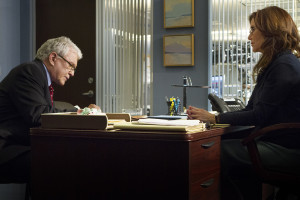 BOOM! Major Crimes scored big last night, hitting a new season high with 5.3 million viewers tuning in to see Sharon Raydor kick her erstwhile husband to the curb and formally invite Rusty into her family. This marked an increase of 7% of the prior weeks ratings.Big gains were also seen in the key 18-49 demo, coming in at 0.9 and 1.2 million 25-54, an increase of 12% and 11% over the prior week, respectively.
BOOM! Major Crimes scored big last night, hitting a new season high with 5.3 million viewers tuning in to see Sharon Raydor kick her erstwhile husband to the curb and formally invite Rusty into her family. This marked an increase of 7% of the prior weeks ratings.Big gains were also seen in the key 18-49 demo, coming in at 0.9 and 1.2 million 25-54, an increase of 12% and 11% over the prior week, respectively.